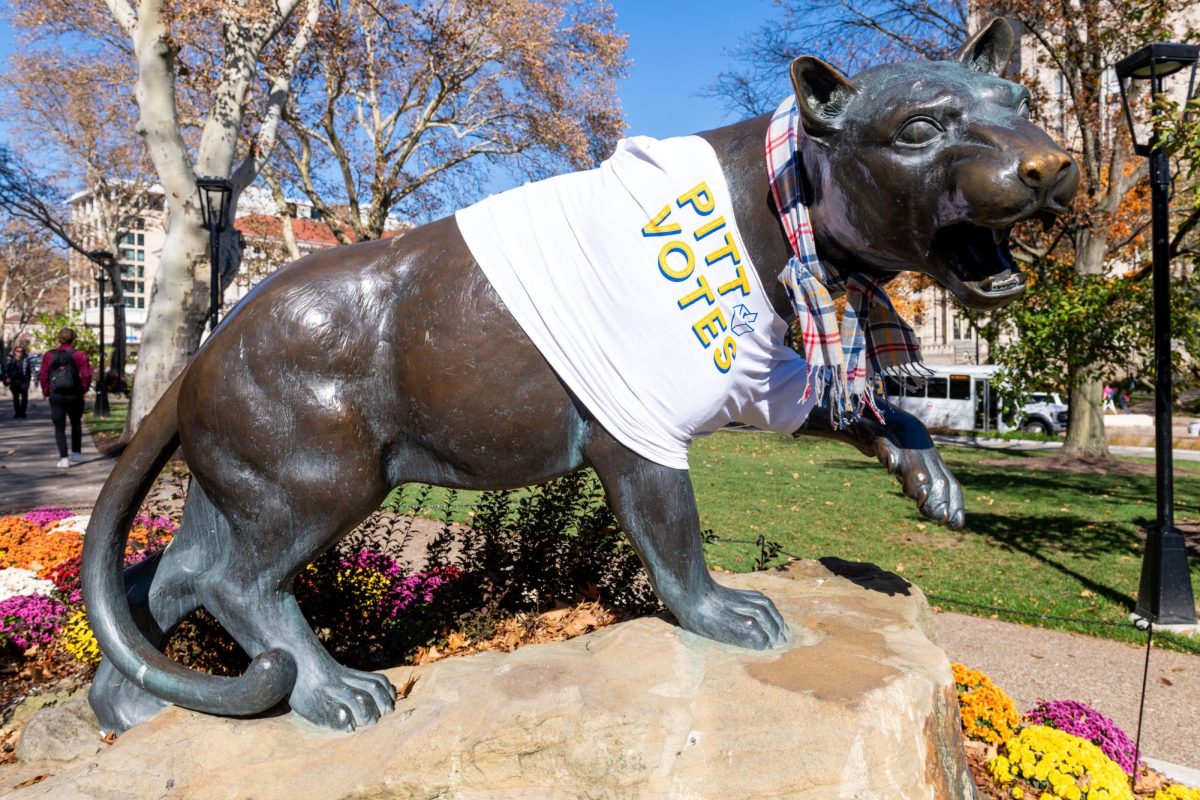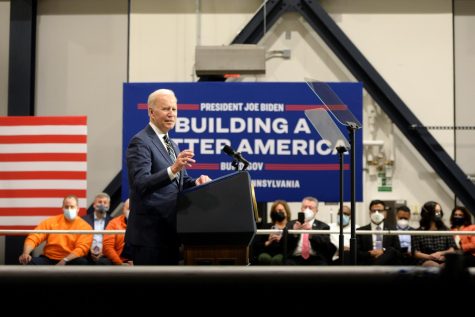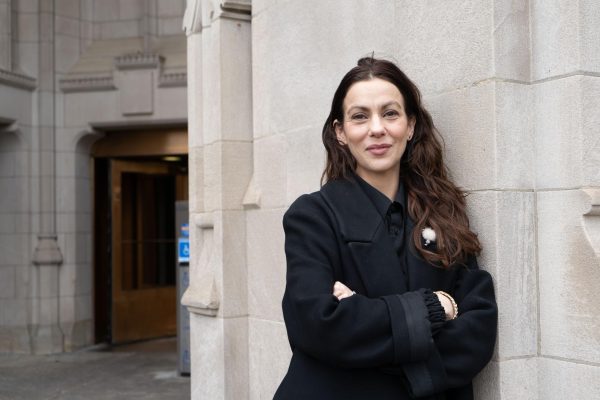Students join gas drilling protest
November 3, 2010
Pitt students joined hundreds of demonstrators that gathered Downtown yesterday to protest… Pitt students joined hundreds of demonstrators that gathered Downtown yesterday to protest Marcellus Shale drilling with music, marching and speeches.
The protesters gathered at Allegheny Landing on the North Shore around 10:30 a.m., where organizers distributed pamphlets, banners and signs with slogans like “shut them down,” “gas holes stink” and “Ed Rendell will go to hell,” among others.
By 11 a.m., the crowd began to grow substantially, and not just with college-aged protesters. Pittsburghers of many ages and dispositions participated in the protest and march, suggesting how pervasive the issue of natural gas drilling has become among Pennsylvanians.
The Pittsburgh Student Environmental Coalition, a conglomeration of student groups from Pitt, CMU, Chatham and Duquesne made up a considerable portion of the crowd.
Seth Bush, a representative from the coalition, said that he is not only opposed to the “fracking” process that has been so widely publicized, but also that “the water used for fracking is treated with chemicals that are carcinogenic.”
He also voiced concern that “water treatment facilities can’t handle [water from fracking], and so some of the chemicals end up in rivers and streams.”
Many environmentalists have taken up Bush’s concerns in the past weeks and months, organizing similar protest events and campaigns.
Travis Windle, a spokesman for the Marcellus Shale Coalition said after the event, “The fluid used for hydrofracking is 99 percent water and sand” and that “the additives are similar to food additives, as well as biocides for killing bacteria.” He also said that these additives and other information about drilling technologies are available at the Pennsylvania Department of Environmental Protection’s website and that “there is a trend in misinformation about natural gas production.”
Mel Packer, a local Green Party affiliate and one of the emcees for the event, said that he was thrilled to see not only residents from Pittsburgh, but people from New York, Eastern Pennsylvania and West Virginia at the event as well.
On the North Shore, the gathered protesters listened to speakers and musical groups, which included Fox Club Forager, a folk-punk act from Boston, and The Raging Grannies, a trio of local grandmothers who strongly oppose shale drilling.
State Sen. Jim Ferlo, D-Allegheny, an opponent of shale drilling, gave one of the principle speeches.
“We need to heed our state constitution, which says the people have a right to clean air, pure water and to the preservation of the natural, scenic, historic and aesthetic values of the environment,” Ferlo said.
“I took an oath as an elected Senator to defend that constitution, and I’m going to fight to protect it,” Ferlo said.
Around noon, the protesters marched across the Rachel Carson Bridge toward the David Lawrence Convention Center, where the Developing Unconventional Fuels Convention was taking place. Former Deputy White House Chief of Staff Karl Rove spoke at the event.
On the way to the convention center, some of 200 protesters attempted to hang a banner from a traffic light post that read, “Burn in Hell, Halliburton,” in reference to a corporation providing equipment and services to the drilling industry. Local police promptly removed it.
Aside from this incident, the protest was relatively peaceful, and the police on the scene seldom had to intervene.
At the convention center, the crowd heard from several speakers and performers ranging from Justin Sane of Anti-Flag to Pittsburgh City Councilman Doug Shields.
Before playing a song, Sane, in the anti-establishment rhetorical style for which his band is known, said that “the natural gas industry can just wave money at politicians and it makes it okay to harm the environment.”
He also said “the industry is not complying with the Clean Water Act.”
But, on Oct. 25, John Hanger, the secretary of the Pennsylvania Department of Environmental Protection said, “We have not had a single case of these [fracking] fluids coming back to the groundwater.”
Windle said that “Hydrofracking is not new; its been in commercial use since 1949, and it has been used 1.1 million times since then.” He also said, “[Hydrofracking] is one of the most tightly regulated methods in the industry.”
Shields, one of the most outspoken opponents of shale drilling in Pittsburgh, said that he is working to secure six necessary votes in the Council to ensure a veto proof affirmation of a drilling ban in the city.
Shields said that “the ban is going to engender a legal fight,” but that he hopes to send a message to other cities as well as the state legislature about banning shale drilling.
Pitt sociology professor Susan Staggenborg said that “these movements can show that there is a public opinion on the issue [of gas drilling],” and that “this issue is likely to get some support from politicians.”







